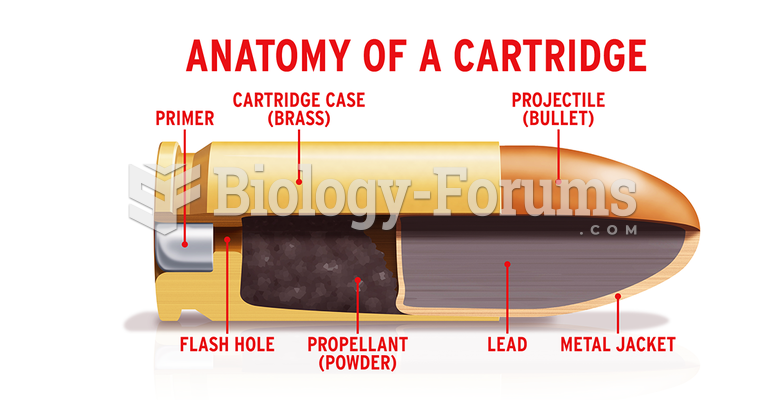|
|
|
Did you know?
There are 20 feet of blood vessels in each square inch of human skin.
Did you know?
The B-complex vitamins and vitamin C are not stored in the body and must be replaced each day.
Did you know?
The types of cancer that alpha interferons are used to treat include hairy cell leukemia, melanoma, follicular non-Hodgkin's lymphoma, and AIDS-related Kaposi's sarcoma.
Did you know?
In most climates, 8 to 10 glasses of water per day is recommended for adults. The best indicator for adequate fluid intake is frequent, clear urination.
Did you know?
Patients who have undergone chemotherapy for the treatment of cancer often complain of a lack of mental focus; memory loss; and a general diminution in abilities such as multitasking, attention span, and general mental agility.
 Mead analyzed taking the role of the other as an essential part of learning to be a full-fledged ...
Mead analyzed taking the role of the other as an essential part of learning to be a full-fledged ...
 Technology has changed our lives fundamentally. The connection to each telephone call used to have ...
Technology has changed our lives fundamentally. The connection to each telephone call used to have ...





